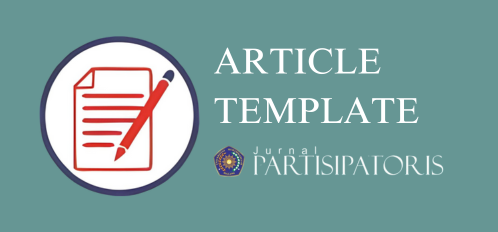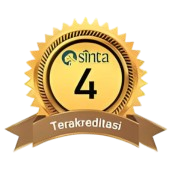Public Private Partnership in Tourism Development during a Pandemic
DOI:
https://doi.org/10.22219/jp.v4i2.23511Abstract
Public private partnership exists as a form of government innovation to improve the quality of public services. This is why every government agency continues to be required to continue to innovate. In the context of tourism development during the Malang city pandemic. TIC (Tourist Information Center) is an application that is being developed by the Malang City Government which is prepared to promote the tourism sector in Malang City, which is then carried out in collaboration between Gojek and Malang City Government. Malang City Government uses a public private partnership model of cooperation. The method used in this research is descriptive qualitative. As for the data collection technique is done by observation, interviews and documentation. As for the research subjects include the head of government, as well as field staff and Disporapar Malang. The purpose of this study is to find out how the development of tourism in Malang City during the pandemic by using a public private partnership model, besides that also to find out what factors are obstacles in its implementation. The results of this study indicate that tourism development using the PPP cooperation model in Malang City has been running which then produces an application called TIC. However, for now the TIC application that was formed is still not linked or integrated with the Gojek application.
Keywords: Public Private Partnership, Tourist Development, TIC (Tourist Information Center)
Downloads
References
Basri, H. (2019). Pengembangan Pariwisata Dalam Peningkatan Ekonomi Masyarakat Di Kabupaten Sumenep. JURNAL MUQODDIMAH : Jurnal Ilmu Sosial, Politik Dan Hummaniora, 3(2), 57. https://doi.org/10.31604/jim.v3i2.2019.57-66
Daraba, D., Indah Murwani, S., Dione, F., & Salam, R. (2020). Pola Prinsip Kemitraan Dalam Pengembangan Pariwisata Di Kabupaten Purbalingga Provinsi Jawa Tengah. Profit, 14(2), 56–62. https://doi.org/10.21776/ub.profit.2020.014.02.7
Febrianti Dwi Cahya Nurhadi, Mardiyono, S. P. R. (2004). Strategi Pengembangan Pariwisata Oleh Pemerintah Daerah Terhadap Pendapatan Asli Daerah. Administrasi Publik, 2(2), 325–331.
Gunawan, A. S., Goretti, M., & Endang, W. (2016). MASYARAKAT ( Studi pada Wisata Religi Gereja Puhsarang Kediri ). Administrasi Bisnis, 32(1), 1–8.
Isdarmanto, I. (2020). Strategi Branding Pengembangan Industri Pariwisata 4.0 Melalui Kompetitif Multimedia di Era Digital. Journal of Tourism and Creativity, 4(1), 1. https://doi.org/10.19184/jtc.v4i1.14383
Katarina, & Fithriana, N. (2017). Pengembangan Sektor Pariwisata Dalam Upaya Peningkatan Pendapatan Asli Daerah Kota Batu. Jurnal Ilmu Sosial Dan Ilmu Politik, 6(2), 120–125.
Mario, B. dan I. G. A. K. G. (2015). Strategi Pengembangan Objek Wisata Air Panas Di Desa Marobo, Kabupaten Bobonaro, Timor Leste. E-Jurnal Ekonomi Dan Bisnis Universitas Udayana, 11(4), 773–796.Nofriya, N., & Sari, P. N. (2021). Prevention of the Spread of the Covid-19 Pandemic in the Tourism Industry in Padang Pariaman Regency. Jurnal Kesehatan Masyarakat Andalas, 15(1), 26. https://doi.org/10.24893/jkma.v15i1.609
Novita, S., Devina, M. S., & Fretes, D. (2021). Pengembangan Pariwisata Dalam Upaya Pembangunan Ekonomi Masyarakat Di Pulau Pari Kepulauan Seribu. Jurnal Abiwara, 2(2), 6–12.
Prasodjo, T. (2017). Pengembangan Pariwisata Budaya dalam Perspektif Pelayanan Publik. Jurnal Office, 3(1), 7. https://doi.org/10.26858/jo.v3i1.3448
Primadany, S. (2013). Analisis Strategi Pengembangan Pariwisata Daerah (Studi Pada Dinas Kebudayaan Dan Pariwisata Daerah KabupatenNganjuk). Jurnal Administrasi Publik Mahasiswa Universitas Brawijaya, 1(4), 135–143.
Puspawati, D. P. H., & Ristanto. (2018). Strategi Promosi Digital untuk Pengembangan Pariwisata Kota Magelang. Jurnal Jendela Inovasi Daerah, I(2), 1–20.
Waani, H. F. (2016). Sosial Budaya Dalam Pengembangan Pariwisata Di Kelurahan Bunaken Kecamatan Bunaken Kota Manado. Acta Diurna Komunikasi, 5(2), 1–9.
Downloads
Published
How to Cite
Issue
Section
License

This work is licensed under a Creative Commons Attribution-ShareAlike 4.0 International License.
Authors who publish with Jurnal Partisipatoris agree to the following terms:
- For all articles published in the Jurnal partisipatoris, copyright is retained by the authors. Authors give permission to the publisher to announce the work with conditions. When the manuscript is accepted for publication, the authors agree to the automatic transfer of non-exclusive publishing rights to the publisher.
- Authors retain copyright and grant the journal right of first publication with the work simultaneously licensed under a Creative Commons Attribution-ShareAlike 4.0 International License that allows others to share the work with an acknowledgment of the work's authorship and initial publication in this journal.
- Authors are able to enter into separate, additional contractual arrangements for the non-exclusive distribution of the journal's published version of the work (e.g., post it to an institutional repository or publish it in a book), with an acknowledgment of its initial publication in this journal.
- Authors are permitted and encouraged to post their work online (e.g., in institutional repositories or on their website) prior to and during the submission process, as it can lead to productive exchanges, as well as earlier and greater citation of published work (See The Effect of Open Access).











